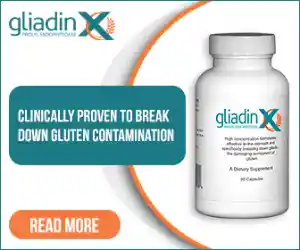-
Welcome to Celiac.com!
You have found your celiac tribe! Join us and ask questions in our forum, share your story, and connect with others.
-
Get Celiac.com Updates:Support Our Content
TTG test going up after two years diagnosis and very strict gluten free diet
-
Get Celiac.com Updates:Support Celiac.com:
-
Recent Activity
-
- VinnieVan replied to VinnieVan's topic in Introduce Yourself / Share Stuff2
Question
Thank you for your response, Trents. I was only 10mo old at the time, so I don’t know anything about the doctor other than he was in Portland, Oregon. I assume, given it was 1954, that he was white, but I can’t be sure. We didn’t live in Oregon. Having this “issue” was never a big deal as I remember. As an older child, teen and young adult, I ate some brea... -
- trents replied to VinnieVan's topic in Introduce Yourself / Share Stuff2
Question
Welcome to the forum, @VinnieVan! No, never heard it called that. What was the physician's racial/ethnic profile? IIRC, The connection between gluten and celiac disease was made during the WW2 era in Holland when the Germans blockaded a region along the Rhine River and the local populace did not have access to wheat flour. A local physician began to... -
- VinnieVan posted a topic in Introduce Yourself / Share Stuff2
Question
Hi, brand new here! When I was a baby, I was nursed exclusively until I was 10mo old. My mother introduced a few foods, some of which had gluten. I became very ill and she had no idea why. The doctor she took me to told her I had “Anglo Saxon disease and could not eat any gluten.” He also told her I would likely never walk and not develop normally. I’m 7... -
- cam6 commented on Scott Adams's article in Additional Concerns4
Is Chipotle Gluten-Free? A Celiac's Guide to Safe Dining
@trents I’ve done this many times over many years, and that has never been a problem. I think they fill & bag the items on a ticket before they move on to the next one so it’s not likely to be a problem. My bag has my name on it from my account. It’s just my bowl inside the bag that says Gluten Allergy.- celiac disease
- chipotle
- (and 8 more)
-
- Katya773 posted a topic in Post Diagnosis, Recovery & Treatment of Celiac Disease0
Previous Biopsy Results
Hello:). This a lengthy post. Just looking for some advice. I had the capsule study back in 2019 I tried the gluten challenge but got so horribly distended and could finish it, I had been gluten-free since 2016 except for occasional accidental ingestion. However In 2019 I saw a gastroenterologist due to nonstop diarrhea and bloating. No diagnosis of Crohns...
-












Recommended Posts
Create an account or sign in to comment
You need to be a member in order to leave a comment
Create an account
Sign up for a new account in our community. It's easy!
Register a new accountSign in
Already have an account? Sign in here.
Sign In Now